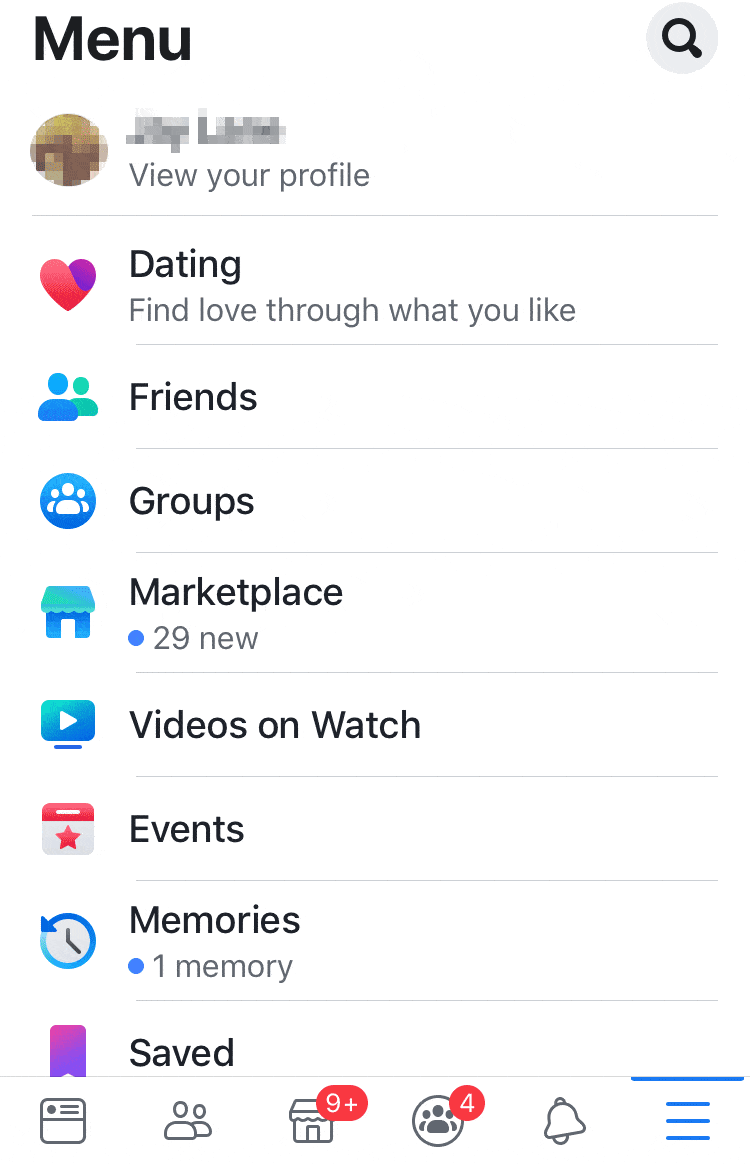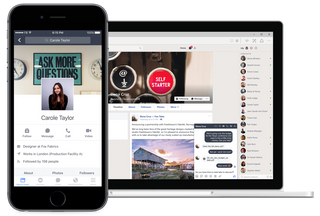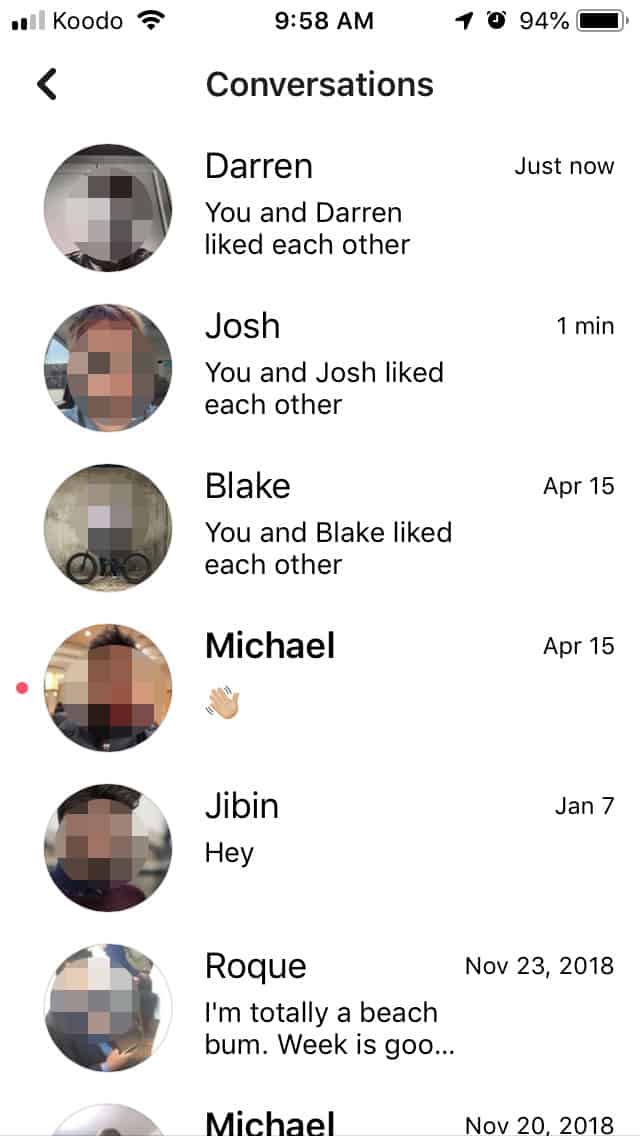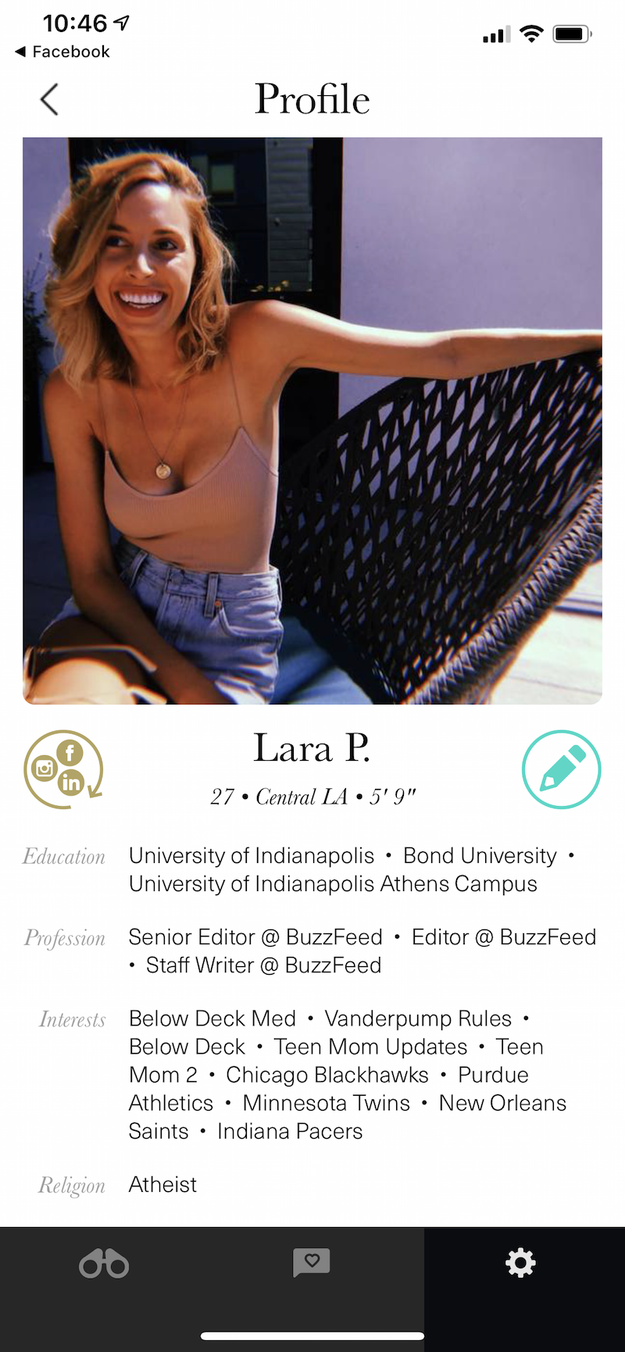Facebook Dating Cost
I used to find it frustrating when people blamed dating apps for how bad dating is.
- Facebook Dating Cost Comparison
- Facebook Dating Cost Estimator
- Facebook Dating Cost
- Facebook Dating Cost 2019
Facebook Dating is a Facebook app extension that acts as a dating service. It allows you to create a dating profile, separate from your Facebook profile, and meet other singles of Facebook. The concept of Facebook Dating is slightly different from other popular dating apps, as it focuses on starting meaningful relationships based on mutual. Dating apps are nothing new anymore. But now a new big player is entering the market: Facebook. Is Facebook dating the new way to date? Which data is used an. By Nathan Sharp, Product Manager, Facebook Dating. Facebook Dating makes it easier to find love through what you like — helping you start meaningful relationships through things you have in common, like interests, events and groups. It takes the work out of creating a dating profile and gives you a more authentic look at who someone is. But I found out that I should update the things I like on Facebook so that they don't transfer automatically over onto dating app profiles! A year-long membership costs $29 per month or $349.
“What’s the alternative?” I would ask when a friend complained about the chore of swiping and starting a conversation. “Standing in a bar for six hours a night?” But I said this more often when I was in a relationship that had started on Tinder, and I say it much less often now that I’ve spent eight months back in the world of grainy boat-trip photos and “looking for the Pam to my Jim.”
People who have never used Tinder often frame it as an abundance of choice, when in reality, the experience of swiping through those hundreds of thousands of options has the effect of making every option look exactly the same. You can accrue two dozen matches named Matt in the time it takes to finish one glass of wine and throw the glass at the wall. Tinder doesn’t make it feel easy to go, as they say, “on to the next!” Tinder makes it feel like the next will be just like the last, which will be just like every other one, forever. The plentitude of fish in the proverbial sea is actually an apt metaphor, because what kind of lunatic could actually specify an individual fish they’d be interested in catching? They’re all fish.
Enter Facebook Dating, which seems to be differentiating itself at least partly on sheer numbers: Three-quarters of Americans are on Facebook. Tinder, the largest dating app on the market right now, has about 5 million users.
“In theory, given that so many people use Facebook, they could harness that population in an advantageous way,” says Kevin Lewis, a sociologist at UC San Diego who has studied both Facebook and online dating. “Will everyone sign up for it? If everyone did, this would be by far the biggest dating site there ever was.” Great, an even bigger sea.
Facebook Dating Cost Comparison
Facebook’s motivations to get into the dating game are somewhat obvious. Analysts expect dating apps to be a $12 billion business by the end of next year. Advertising, premium accounts, and other paid features on Tinder bring in the lion’s share of revenue for its parent company, Match Group, which just reported a $498 million quarter and also owns Hinge, Plenty of Fish, Match.com, OkCupid, and dozens of smaller dating-related businesses. It’s understandable why Facebook would want a piece of that market, especially because teens and Millennials are abandoning the social network in droves.
Facebook Dating Cost Estimator
To use Facebook Dating—and this is billed explicitly as one of the benefits—you don’t need to download another dating app. You enroll within the Facebook app, which I assume is still installed on your phone. Just kidding: Though a sizable majority of all Americans under 65 still have Facebook accounts, 44 percent of users ages 18 to 29 deleted the app from their phones in 2018. (Just imagine an army of horny 20-somethings scrubbing their furious #DeleteFacebook tweets in service of their love life.) Facebook Dating is free and doesn’t include any advertising, and the company says it never will. But it does pull users back into Facebook’s ecosystem, creating a new and very compelling reason for people—especially young people—to use an app they may have deserted.
And, of course, it could be that Facebook picked this moment to get into dating because everyone else already is. Even if thousands of Tinder bios still read, cloyingly, “Let’s lie about where we met,” conversational laziness often leads people to gesture at a stigma that isn’t really there, or express discomfort with things that they’re actually fine with—such as dating apps, and such as downloading another dating app after they’ve become jaded with the first dating app, their continued ability to return to the App Store serving as a tiny sign that their heart is still beating and they’re still looking for it.
The irrepressibly genteel New York Times weddings section regularlyname-checksTinder. The presidential hopeful Pete Buttigieg met his husband on Hinge. The latest Pew Research Center data, from 2016, showed that 22 percent of Americans ages 25 to 34, and 27 percent of Americans ages 18 to 24, had dated online. Eighty percent of the people who had done so said it was a good way to meet someone, and 46 percent of college graduates said they could personally name someone for whom online dating had resulted in a marriage or long-term partnership. Those numbers were all drastically higher than they had been when Pew looked into the matter just three years earlier. It’s probably safe to assume that they’re even higher now. Online dating has become sufficiently mainstream to be part of the most mainstream website of all time.
If you ask Facebook, the company is getting into dating because its leaders think they can actually improve it. A recent study conducted by Edelman and commissioned by Facebook showed that 40 percent of people who currently use dating apps aren’t happy with the experience, Facebook Dating’s product manager, Charmaine Hung, told me.
“We hope that those people will give Facebook Dating a try,” she says. “We’re also hoping that people who have never tried dating apps before will try Facebook Dating because of the safety features we put in, as well as really activating your community and the interests you share with people.”
To celebrate the surprise launch of Facebook Dating in the U.S. (after a year of testing in smaller markets), Facebook invited a bunch of tech journalists and a few dozen influencers to a breakfast meeting at a hip all-cement venue more or less on the edge of the Hudson River in Manhattan. The subject of the event was kept mostly a secret until attendees were escorted to the basement, where a product manager, Nathan Sharp, gave a quick introduction to the app. He got in a quick dig at the competition by explaining that Facebook doesn’t believe in keeping “the best features behind a paywall,” and that its version of dating doesn’t involve any swiping—a reference to the baseball-card dating paradigm popularized by Tinder starting in 2012.
The message was clear: For Facebook, facilitating love is not a joke; it’s a public service.
The next point was even clearer: Facebook is aware that people are already using its products to hook up. Its executives have heard the phrase slide into the DMs. We did not get an opportunity to hear a Facebook spokesperson say this phrase aloud, but Sharp did invite the Modern Family star Sarah Hyland and the former Bachelorette contestant Wells Adams to come onstage and explain how they met: through the direct-messaging feature on Instagram.
Hyland and Adams, who are engaged, gave a 45-minute presentation explaining how one should go about inviting another person to get tacos, how to say “I love you,” how to propose marriage. (You might argue that this presentation was wildly hostile toward single people, who are having trouble finding someone to ask to get tacos—not because they are confused about how to use Facebook’s suite of networking products, but because most people just aren’t that fun to hang out with—and who, even if they aren’t exercising the muscles at this exact moment, do in fact know how to express their thoughts and feelings. Or you may not be as sensitive as I am.) When Adams and Hyland were finished talking about their perfect lives, curtains all around the room dropped to the floor, and it was revealed that the presentation area was surrounded by a ring of brand activations: a pen of puppies wearing Facebook Dating bandannas, a pop-up coffee shop serving romantic desserts, a florist giving out elaborate bouquets.
On display in the basement’s gallery section were works of art inspired by love and Facebook and famous dorm posters. Rodin’s Thinker was hunched over, pondering his options—“heart” or “X”—against a magenta backdrop. Michelangelo’s Creation of Adam was remixed in purple and pink, the pointer fingers of God himself and the first man reaching toward a Facebook Dating icon. I have to admit, this is the shit I live for. Did it tell me anything new about why Facebook is suddenly interested in operating a dating app? Not exactly, but it did tell me what Facebook thinks about daters as a cohort: that we want to live in a romantic comedy, and that we are easily charmed.
Visually, Facebook Dating is similar to Hinge, which, in its initial version, suggested matches exclusively from users’ mutual Facebook friends. (Hinge also takes a hard stance against swiping and has long advertised itself as “the relationship app,” in opposition to Tinder’s notorious hookup culture. It was acquired by Tinder’s parent company earlier this year.) Functionally, the app is also similar to Hinge—you scroll through profiles, send a like, send a message. You can see people who have already liked you—a feature that is also available on Hinge. (On Tinder, something similar requires a monthly subscription fee, which I have paid many times.) It’s not exactly groundbreaking.

“Facebook has a history of this,” Brendan Griffiths, an assistant professor of interaction design at the New School, told me, citing Instagram’s rip-off of Snapchat’s signature Stories feature in 2016. “It’s clear that they aped features [from Hinge and Tinder] pretty directly. I would say that’s where the vast majority of their inspirations come from.” (Facebook did not respond to a request for comment on these similarities.)
Griffiths does not care for Dating’s purple color scheme and calls it “pretty infantilizing.” Overall, “it doesn’t feel like they were going for anything specific other than to capture a market that they understand to be potentially valuable.”

“The purple color is awful,” echoes Barbara deWilde, executive creative director of products and design at The New York Times. “But Facebook is not known for its stunning visual design.”
/cdn.vox-cdn.com/uploads/chorus_asset/file/19170995/Profile_Creation__1____DF.png)
Facebook Dating’s one innovative feature is called Secret Crush, and it’s what it sounds like. If you have a secret crush on any of your Facebook friends or Instagram followers, you can add them to a list of secret crushes and wait to see if they add you to theirs. The Edelman survey that Facebook commissioned found that 53 percent of online daters have a crush on someone they already know, but they’re afraid to admit it (sure), to which I say, lucky them? Having a crush is an amazing feeling, and life without a crush is an extremely boring trudge toward deadened nerves and spinal erosion.
Though the profile you set up in Facebook Dating is independent of your main Facebook profile (a smart choice, given that the Facebook profiles of most of the people I know consist of dozens of photo albums from 2009 with titles such as “seniorrrrsss” and “myrtle beach <3”), Dating is still able to suggest matches based on the information you’ve provided the main app. These could, for example, be people who belong to the same Facebook groups you do, or have attended the same events. The enterprising Facebook dater could even stage a meet-cute! It would be pretty easy. You could pretend the internet wasn’t involved at all. It’s just a wingman, pointing you to the right bookstore in the right sweater, or a seltzer enthusiasts’ meet-up in the park, during the golden hour.
This is genuinely exciting for anyone overwhelmed by the randomness of other dating apps. As my colleague Ashley Fetters wrote recently, Facebook Dating is explicitly designed “to inject some of the more human aspects back into online dating through features that mimic the ways in which people used to meet-cute before the Tinder age.” Meet-cutes, though they sometimes involve flopping down in the middle of the street or walking around with a balloon stuck to your butt, do not feel as existentially degrading as sifting through thousands of photos of men with four friends and two facial expressions, followed by dozens of identical conversations about how it’s a shame that summer is over. The more time you spend on Tinder, the lower the bar gets for perceived compatibility—has listened to a song I’ve heard, works at a restaurant I’ve walked past, went to the beach one time, sure. You start looking—no more, no less—for evidence that the person exists at all.

“Everyone’s always asking, ‘Is this person real, and who is this person really?’” Hung tells me, repeating a line that was used at the press event. “In Facebook Dating, we have a lot of really unique features so you can feel confident that this person is a real person. It can help give a more authentic view of a person. We want to help you find love through what you like.” This is Facebook’s “really great superpower,” she says.
Obviously, I signed up for Facebook Dating as soon as I got home from the official launch, downloading the Facebook app onto my phone for the first time ever.
For the first week, there was literally nobody there to match with. (Understandable.) In the second, the list was short and strange, populated mainly by people named “Meme,” or “C, like the letter of the alphabet. People call me Philip.” The default geographic range was 200 miles, so many of my initial suggested matches lived in Pennsylvania or deep New Jersey, hours away from my home in New York. I was excited to open the list of suggested matches sourced specifically from events I’ve attended, thinking it not at all unreasonable to expect that at least one cutie had gone to see my friend’s band a few weeks before, or had been at the early-summer book launch at which I got so emotional, I slid off my chair (would have been a good meet-cute!). But all the suggestions were people who attended the 2017 Women’s March—half of Brooklyn?—or an apple festival in my college town three years ago, or a free Grace Potter concert in 2015.
Most of the Facebook groups I belong to are useless for dating purposes: a high-school friend’s bridal party, a space for mall food-court coffee-shop employees to trade shifts. An alumni group, my God. This is not Facebook’s fault; this is my fault. Good Facebook Dating users will first be good Facebook users—as in active Facebook users, diligently logging each time they go someplace where eligible people might be lurking, scrolling through their phone, too. If that doesn’t work, an ambitious dater could start joining more groups. It’s a better idea for how to meet people who actually move in the same real-world spaces you do, but it requires regularly documenting your real-world movements and interests on Facebook.
Facebook Dating Cost
Relatedly, the easiest way to populate your profile is by filling it with your Instagram photos. Later this year, Facebook Dating users will be able to cross-post their Instagram Stories to their dating profiles. When I asked Hung whether part of the goal of Facebook Dating was to bring young people over from Instagram to the flagship app, she said, “We’re always looking for opportunities where we can see where people like to share. Do people like to share on Facebook? Do people like to share on Instagram? And we want to meet people where they’re already sharing. We’re really excited that we’re bringing Instagram into that.”

I don’t know what that means on a sentence level, but I think probably it’s a yes, generally.
If you’re already good at sharing, and posting, and RSVP-ing, and projecting an authentic self that’s appealing to others online, Facebook Dating might feel, as intended, like a “superpower.” But I am a bad Facebook user, and so I am a bad Facebook dater. At the end of my two-week trial, I had eight matches and two messages: One was “Hey kaitlyn,” and the other was “Sup I’m only here for hookups and memes,” with a laugh-crying emoji. The notifications showed up in my main notifications tab, next to the information that I’d been tagged in photos from my cousin’s wedding.
Even so, Facebook Dating will likely help lots of people find love, for free. Hung repeats that Facebook has no plans to monetize Dating, ever, in any way—no fees, no ads. She even seems annoyed with me for asking. “Yup, there’s no advertising in Facebook Dating, and nothing you do will be shared to advertisers,” she says. “Nothing you do on Facebook Dating will be shared to advertisers.”
The cost of an actually good, useful, dignified dating app is more activity, more engagement, more personal information. When Facebook spokespeople talk about entwining Instagram Stories and Facebook Dating, they speak energetically of how it will make profiles more “authentic”—a word that has been bled of all meaning not by Tinder, but by Instagram itself over the course of the past eight years.
Never mind the fact that Facebook is currently the subject of an antitrust investigation; here’s another market it can enter and immediately claim a competitive edge in simply by slamming down the trump card of an unparalleled network graph. Forget that Facebook doesn’t need dating revenue, and won’t collect any; it still thinks of its users as dopey enough not to look for another motive.
“Facebook knows so much about us, not just how we self-describe,” Kevin Lewis says, trying to riddle out whether its dating experiment will succeed. Facebook has a more intimate understanding of its users than Tinder ever will. But more than 60 percent of Americans don’t trust Facebook with their personal information anymore, if they ever really did. “Facebook is a little late with this. There’s a lot of distrust these days around Facebook,” he says, going back and forth on it. “I could see this leading to a resurgence in Facebook activity and working out quite well; I could see this totally tanking. I think it’ll be one or the other.”
Facebook Dating Cost 2019
I don’t know—it already worked on me.